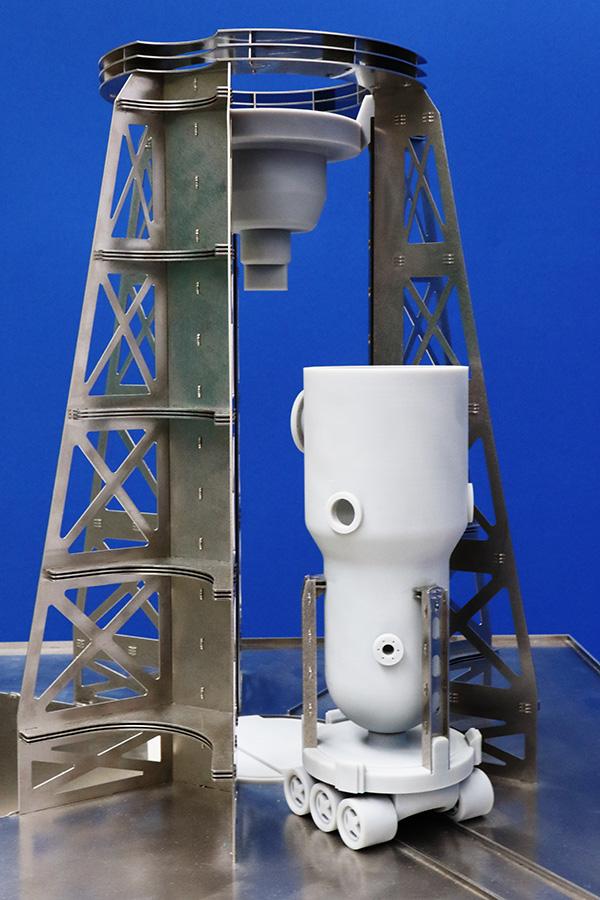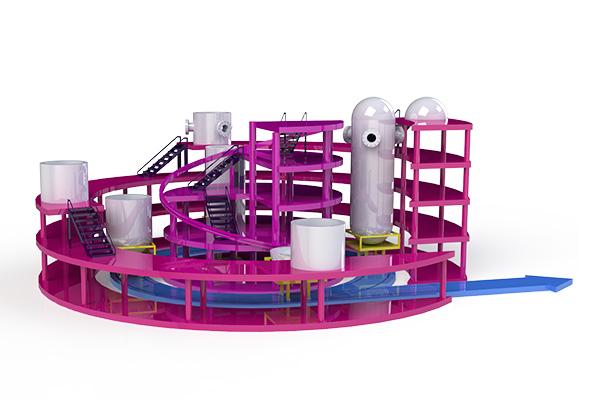The Inform project aims to develop a range of advanced techniques which could halve the cost and time of manufacturing large complex nuclear components.
Inform (Intelligent Fixtures for Optimised and Radical Manufacture) focuses on technologies which can save time and money throughout the manufacturing process for large-scale nuclear components.
Technologies developed through Inform include near-net forgings, optimised machining, local-vacuum electron beam welding, advanced fixturing and digital monitoring.
The first phase of the project was supported by around £1.1 million project funding from the Department for Business, Energy & Industry Strategy (BEIS) through the Small Business Research Initiative (SBRI) managed by Innovate UK.
Inform is supported by a range of nuclear industry partners to ensure the research is addressing industry challenges. The results are now being shared with UK industry – for more information, download the Inform summary report (5MB pdf) or full Inform technical report (24MB pdf).
Industrial and research partners on the project included Sheffield Forgemasters, MetLase, TWI, Cambridge Vacuum Engineering and the University of Sheffield AMRC.
Inform and its sister project Simple were shortlisted for the Manufacturing Technology category of The Engineer magazine’s Collaborate to Innovate Awards 2019.
The Inform vision
The initial vision for Inform was to develop an intelligent adaptive fixturing system to ease the movement of large parts around a factory throughout the entire manufacturing cycle, and ensure precision through innovative forging, machining, welding, inspection and assembly processes.
The proposed technology would hold large components while they undergo the full range of manufacturing operations, and facilitate movement between platforms and machines. With sensors linked to actuators and manipulators, the fixture would automatically adjust its grip to minimise distortion during movement and manufacturing.
After initial studies identified the fundamental challenges to this long-term vision, the project broadened to consider a range of enabling technologies which could offer nearer-term benefits throughout the whole manufacturing process for large-scale nuclear components such as reactor pressure vessels.
Ultimately, the integrated technologies developed by Inform could cut cost and time for manufacturing large complex nuclear fabrications on a series of dedicated platforms by at least 50 per cent.
First phase
Inform’s first phase focused on developing and demonstrating the viability, at a small scale, of a range of technologies which underpin the Inform vision. These technologies were identified during an initial down-selection stage in 2017.
The 20-month first phase of Inform started in January 2018, and completed on schedule in August 2019.
Project partner Sheffield Forgemasters led research into optimising the forging process for pressure vessel sections, from steel-making to machined condition of supply.
The Nuclear AMRC investigated a variety of optimised machining and metrology techniques which could be applied to these forged sections, including near-net shape machining, advanced roughing algorithms, and supercritical carbon dioxide coolant to improve machining performance and increase tool life.
Welding research centre TWI worked with Cambridge Vacuum Engineering to develop local vacuum electron beam welding technology, to join very thick vessel sections in a single pass without needing a vacuum chamber large enough to contain the entire assembly.
MetLase, a joint venture between Rolls-Royce and Unipart, developed a proof-of-concept intelligent fixturing demonstrator for assembling a pressure vessel using this local vacuum electron beam welding technology.
And digital manufacturing experts from the University of Sheffield AMRC demonstrated how integrated sensors can provide continuous process monitoring through the manufacturing process, improving efficiency, quality and safety.
Ongoing development can put these technologies into production in the medium term, improving productivity and capability in the UK supply chain.

In the longer term, all these technologies can be brought together in an integrated platform for large-scale nuclear components which will ensure precision and efficiency through the whole manufacturing process.
This could be a critical enabling technology for the cost-effective production of pressure vessels and other key components for a new generation of small and advanced modular reactor, giving UK manufacturers a sustainable competitive advantage, and reducing the cost and risk of future nuclear technologies.
- Download the Inform summary report (5MB pdf)
- Download the Inform technical report (24MB pdf)




